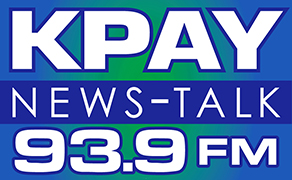By Tom Van Riper-Forbes

BIG FREE AGENT CONTRACTS ARE A BIG REASON WHY MLB IS DEMANDING MORE MONEY FOR
BROADCAST RIGHTS FEES.....WILL THEY ULTIMATELY BE PUSHED ON TO CONSUMER ?
For Major League Baseball, the television money just keeps on coming. And coming.
Ratings, at least for national games that include marquee events like the World Series and All-Star Game, have been flat for years. Yet the money keeps coming. Wall Street media analysts warn that many households are near the end of their ropes when it comes to absorbing higher cable and satellite bills that invariably get passed down to them as networks paying out higher rights fees look to recoup some of that money by charging local operators more per subscriber. Yet the money keeps coming.
A month ago, MLB signed a deal with ESPN to renew baseball coverage through 2021. The contract is worth roughly $700 million a year, almost double the $360 million the current deal pays, which has one more year to run. For additional perspective, the fee is also about five times what ESPN was paying baseball before 2006. ESPN does get a couple of goodies from the new agreement, including the right to air “live look-ins” of games in progress, a feature that baseball currently limits to its own MLB Network.
Once the 2014 baseball season arrives, look for ever more knock-down drag-out fights between networks and cable companies over subscription fees, the same kind that led to Fox pulling part of the 2010 World Series between the Rangers and Giants from Cablevision in New York. With more and more money at stake, these battles are just going to get nastier.
Up next: Turner and Fox. Both are closing in on renewals that are expected to result in a doubling of rights fees as well, to a combined $1.3 billion for same eight-year period of 2014 to 2021. Again, for perspective: in the late 1990s, Fox and NBC were paying under $200 million a year combined to share the national baseball market.
The networks’ bet: that baseball and other premium sports programming will hold up as the glue that holds together the product bundle that cable companies push into homes. It’s a bundle, notes sports media consultant Chris Beviliaqua, that includes phone service, internet access and about 100 cable channels that the customers rarely watch. Sports, including baseball, “is the Trojan horse that gets you into the house,” he says. But as many of the bundle’s components become available elsewhere - T.V. programming at Hulu, phone service going strictly mobile, etc. – they fall out of the pay TV ecosystem. That would render sports a standalone asset, not a centerpiece for peddling additional services. Hence, less valuable.
“The networks deciced to lock in with these rights fees long term, and if the business model changes they end up stuck with them,” says Bevilacqua.
In April, we chronicled the enormous rise in baseball’s local television revenue, as RSNs began doling out bigger fees and (in many cases) equity stakes to teams in order to secure anchor programming in their markets (local sports being the biggest factor consumers look at in determining whether to subscribe to a local cable or satellite service.
Hefty fees in local markets make some degree of sense – baseball fans are tribal creatures that tend to focus on their own clubs. But now the national money is shooting through the roof, too, even though ratings for the World Series and All-Star Game have been at or near historic lows during this decade (the last World Series to average more than 30 million viewers per game – the Braves-Indians matchup in 1995, a time when the World Wide Web was just becoming commonplace in most households and starting to take TV viewers. The public was also getting its first World Series taste in two years, after a players’ strike had wiped out the 1994 Series).
But “those historic lows are still pretty dependable in this fragmented market,” notes Adam Chase, says Adam Chase, an attorney with the Washington D.C. law firm Dow Lohnes who specializes in media and technology in the sports industry. In other words, Fox, ESPN and Turner are confident they’ll get a consistent audience with a favorable demographic for baseball, even if the lower, fragmented numbers are here to stay.









